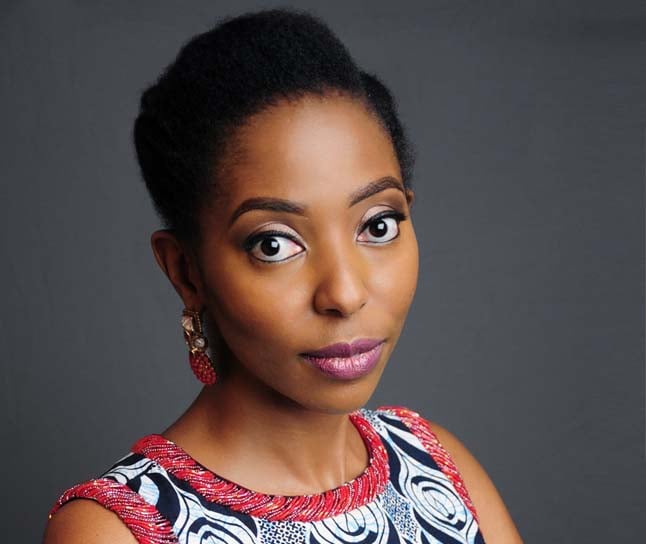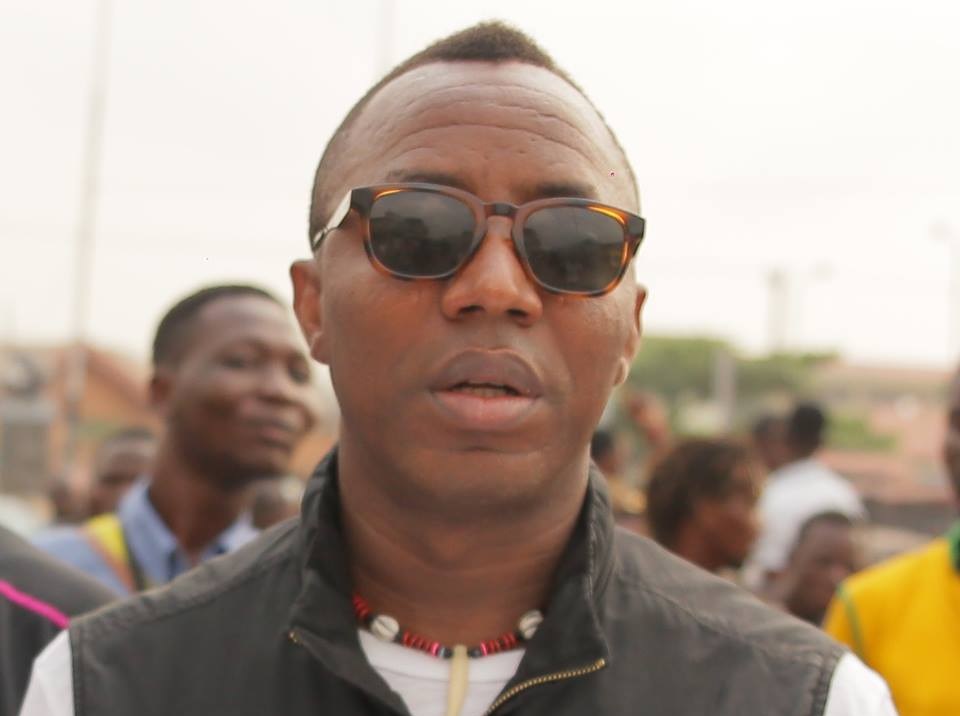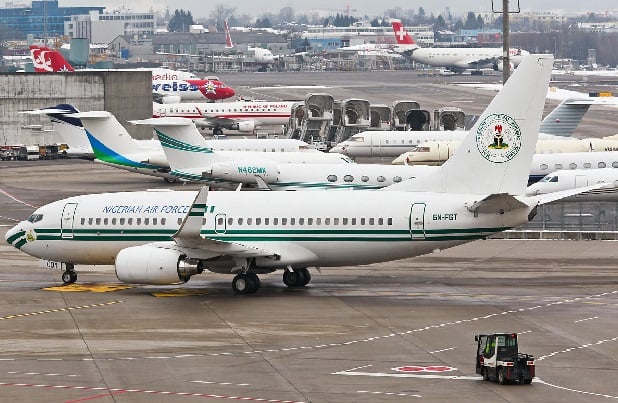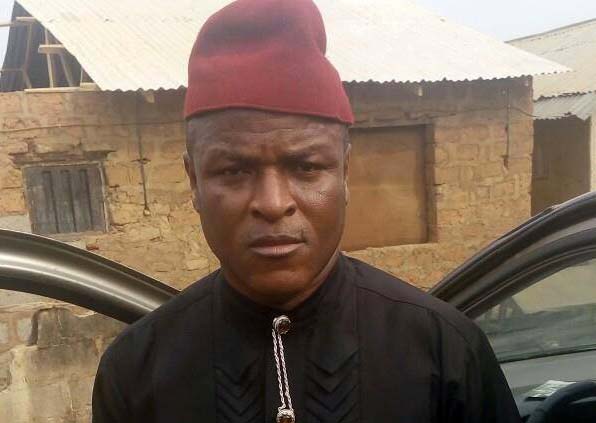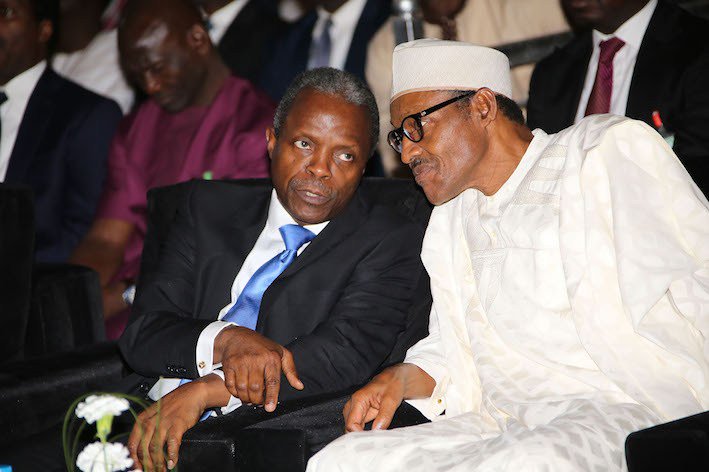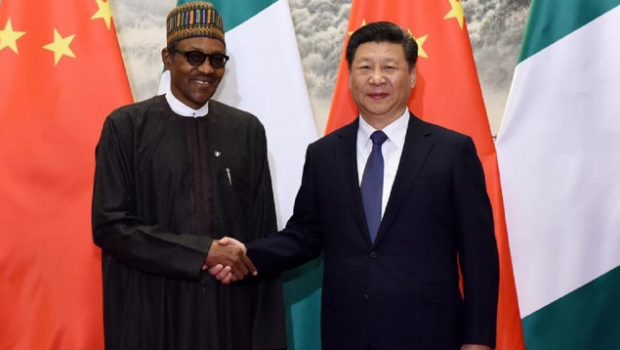Amy Jadesimi, managing director of Lagos Deep Offshore Logistic Base (LADOL) explains to TheCable why Nigeria is fast becoming the fabrication hub in Africa, why Nigeria is now more than ever an attractive investment destination, women’s role in leadership and the impact of increased local content to the Nigeria economy.
TheCable: What is the economic impact of the successful arrival of Egina FPSO in Nigeria?
Amy Jadesimi: The arrival of the Egina FPSO (floating production storage and offloading unit) is a sea change — no pun intended — because it shows that we can now carry out the most challenging industrial project in the world, in Nigeria. This is not just about the arrival of the vessel, it is about the building of the yard and the operation of the yard. The Nigerians who worked in the yard operated above the average global standard and the results speak for themselves.
The fact that the FPSO was sent here was primarily because we achieved everything that we needed to achieve in the yard. The six modules were built, we were ready to receive the vessel ahead of time. And in every way the arrival of the vessel and the way the project has been conducted in Nigeria exceeded expectations. The collaboration and the proof that ease of doing business is working, is also an important mile stone. We couldn’t have achieved this without the support of the Nigeria Port Authority (NPA). The NPA went the extra mile – they set up a committee, they coordinated all the stakeholders (both private and public sector) they made sure that the shipping channel was upgraded, brought in extra equipment, and brought in extra tugs.
Advertisement
At the same time, the Nigeria Export Processing Zone Authority (NEPZA) worked literally 24/7 coordinating government agencies in the zone. So, it really took a village to make this happen and the success is a mile stone that shows that more and more projects like this can be done not just in Lagos but across the country.
With this remarkable achievement in Q1, what will the outlook be for the rest of 2018?
For the project itself, we are now looking to get the work done and for sail-away from LADOL to happen as soon as possible. The other activities in the free zone involves us supporting a wider range of industries. We are diversifying by focusing more on agriculture processing, we are also focusing and completing our upskilling academy, which is about human capital development and the company is going to capture some of the staff that have worked on the FPSO so as to keep them continually employed. Another big focus for us is collaboration. People have often heard us say that on the back of the development of the shipyard in LADOL free zone, we think we can generate up to 50,000 new jobs in Nigeria – directly or indirectly. Most of those jobs will be indirect. There is a ten times multiplier effect on job creation meaning that for every one job created in LADOL, 10 jobs will be created outside. For those 10 jobs to be created, we need more indigenous investment, we need the development of more capacity across the country. And to achieve improved capacity, we need indigenous Nigerians in the private sector to collaborate, we need the banks to make long terms loans available, and we government to continue with its ease of doing business policies.
Advertisement
During the Nigeria International Petroleum Summit, the minister of state for petroleum resources said FG is bringing ‘Project 100’ in April to assist private investors. How can this be achieved?
The first thing you need for any scheme like that to be successful is demand. For us to increase the level of demand that we have for services to be done in-country, we need more shipyards like LADOL. When you have a shipyard like this and everybody knows that the major work, the critical work, the high value work both in terms of fabrication and engineering can be done in Nigeria, that means the locus of the project will be Nigeria and there will be more demand for other aspects, other services to be provided in-country.
For example, the demand for local fabrication we think will increase by a factor of at least four because it is now economically attractive to fabricate in Nigeria and ship the fabricated pieces to LADOL for full integration. I think the ‘Project 100’ is a good scheme, and I will encourage the government to go ahead with it but for the scheme to be sustainable and therefore successful, we actually need more local market demand. We need major projects to be approved, we need more indigenous investment and we need our banks to provide the type of long term low cost financing that these long-term investments require.
When will the integration of the Egina FPSO be completed?
Advertisement
The project schedule that Total is working with is six months, so that’s what we’re working with.
What has been the drawback during the lifetime of the Egina FPSO project so far?
There have been many challenges not just for the project but for LADOL. We have moved from a time where private sector development from LADOL was literally forced out of the market. The biggest challenge we faced is definitely the monopoly that was prevalent in the sector until it was outlawed by President Muhammadu Buhari in April 2017. When you have a monopoly in the sector, particularly when that monopoly is collecting billions of dollars in unaudited revenues from the government, it makes it impossible for other transparent private sector companies to compete. Even worse, the modus operandi of these monopolies was to actively exclude other companies from the market. So, not only did they have this huge advantage, they were also excluding other companies.
Despite all these efforts, LADOL and a small number of other companies manage to succeed. Why? Because we were adding so much value and the market was so desperate for an alternative that despite these huddles, by continuing to invest and providing high quality services and staying faithful to our mission and vision, we were able to get through the challenges and get to a point where under this government, with the position the government has taken, monopoly was no longer tolerated and was now recognised as an economic sabotage.
Advertisement
This government has brought its ease of doing business policies and other policies that allow other private companies like LADOL to flourish. We would not have been able to bring the FPSO into LADOL directly if this monopoly was still dominating the market. And that just isn’t a loss to LADOL but to the whole country because when you keep the market small, you make sure that the vast majority of Nigerians will never benefit. This is not just about one private company, this is about the hundreds of thousands of companies which will now be able to grow and flourish, successful and profitable because of the environment the government has created.
What is the relationship between LADOL and Samsung regarding the fabrication yard?
Advertisement
Samsung is the engineering procurement construction (EPC) contractor hired by Total to build the FPSO. As has been stated by Total, one of the things that Total included in that EPC contract was the construction of the shipyard in LADOL. One of the reasons I think LADOL was chosen as the facility as the location and one of the reasons we have developed such a close relationship with Total is that they knew based on our track record that we would deliver and do everything necessary to ensure that the facility was built.
Total obviously provided a lot of help through the contract and Samsung provided lots of technical assistance based on the scope of work given by Total. Like I said it definitely takes a village. Total is now going to benefit from the assistance they gave us in building the shipyard in many ways. Future projects will be cheaper, they will help create jobs and help increase the capacity for yards across the country. This will create more wealth and prosperity in Nigeria which will translate into Nigerians contributing into the global economy.
Advertisement
So, there will be a direct benefit for Total shareholders in terms of higher returns from their investment in Nigeria and there will be a benefit for the French people in terms of Nigerians and Nigeria as a country contributing to the global economy.
What are the unique features of LADOL’s ship yard?
Advertisement
There are many unique things about the ship yard. First and foremost it is the largest fabrication and integration ship yard in West Africa. It has the largest crane capacity in the whole of Africa. What that means is that it instantly makes Nigeria the hub for fabrication and integration not just for West Africa but for the whole of Africa. There is a similar facility in America in a place called Corpus Christi (Texas) where they also have massive crane capacity and people come from all over the world just to be able to use those cranes because there some operations that can only be done when you have this kind of crane capacity.
Developing this kind of crane capacity requires massive infrastructural investment but you also have to have a location which is reachable by the largest vessels and the largest modules in the world. So, it is a combination of having the ideal location and then building the infrastructure in that location. The LADOL facility has already given Nigerian a platform on which we can become a hub for fabrication and engineering.
What we want to do is to make that a reality by working with other indigenous companies in the maritime sector, in the oil and gas sector, in the industrial sector to actually build additional capacity across the country so that people could come to Nigeria and get a complete solution.
LADOL is not the complete solution. What we’ve done is open the door and make it feasible for these massive project to be completed locally. But for most of the fabrication to be done we need other places where that fabrication has been done.
That is a similar model to the one we see in South Korea, models you see in Europe where you usually have one strategic location where you carry out the integration and the aggregation but the work that goes into the vessel, that goes into an airplane, the work that goes into building train infrastructure and equipment is done all over the country.
What percentage of participation has LADOL had in local content implementation?
It is impossible to say the exact percentage that we are responsible for. There are 18 modules on the FPSO and six of them were built in-country but the modules on the FPSO are only a part of the over all. That’s a small part of the Total Egina project. I will prefer to look at it in terms of: what has our contribution been in terms of changing the potential, the real potential for local content to be increased to 70% for future projects?
I will say that we’ve been instrumental in that. By having a shipyard in LADOL it is now feasible that within the next five years we can reach the levels of local content that we see in Brazil which is a radical improvement in the level of local content and it is something of which we are very proud.
But for that 70% to be reached – I can’t emphasise this enough – we need a lot more capacity, we need collaboration amongst Nigerians, we need people working all over the country, we need 100,000 Nigerian engineers, we need welders, and we need fabricators. There is a lot that still has to be done but the difference between the situation we were three years ago before the shipyard was built in LADOL and where we are at now is that there is a huge economic incentive to build that capacity in Nigeria.
Previously, if you fabricated anything of any significant size in Nigeria, you have to put it on a vessel and send it to the other side of the world to be made part of something else. As you can imagine, the cost of doing that made it uneconomical to actually develop widespread capacity and that is why we had this phenomena where Nigeria was spending hundreds and billions of dollars on projects and very little value, and few jobs were permanently created locally. Instead jobs were created using Nigerian money, in Nigerian projects across the world.
Now that we have this facility, everything you fabricate here can be integrated here. So, all those jobs that were previously exported can now be domesticated and that is critically important and even more important is the fact that if you are an indigenous investor and you have a fabrication yard and you are looking for financing, and you are trying to build a business plan; it wouldn’t have been very difficult for you to build a business plan before this shipyard was built in LADOL because there is no way you could justify to the bank that you could take on very large project. Now that this shipyard is here, you can use other countries as examples. Nigeria is now a far more attractive investment destination.
Holistically, can you say we are on the path to increasing the local content component in Nigeria’s oil and gas industry?
I think that’s the essence of what we’ve done. Simbi Wabote, the executive secretary of Nigerian Content Development and Monitoring Board (NCDMB), confirmed that when he visited LADOL and toured the FPSO a couple of weeks ago. The reason we’re so sure of that is again if you look at what happened in Norway, if you look at what happened in the UK, if you look at what happened in America, what we are predicting would be the outcome from the existence of this ship yard is something that has happened in every single country that has built similar facilities.
So we’re sure that this is going to happen. The only question is how quickly will it happen? And that really depends on how quickly other private indigenous investors come together, and we start to look at this market holistically, and start to collaborate. At the same time we need the government to maintain the ease of doing business platform and to expand it, and that expansion should tackle the fact that our local banks are not giving us the kinds of loans we need In order to develop the capacity that is needed to create these jobs.
What impact has federal government’s ‘ease of doing business’ policy had on the economy?
What I will say is that we haven’t seen significant change in the level of foreign investment, but I think the indigenous private sector does feel the benefit. It’s very hard. There is no way in which doing business in any country in the world, especially with trying to develop and make the kinds of changes our private sector is trying to make. Before we had ease of doing business it was almost impossible for businesses to thrive but now it is now possible, and people just have to recognize that there are no short cuts. It is going to be hard, it is going to take a long time and that is why we keep emphasising the need for collaboration and the need to maintain the ease of doing business platform. This is something we need to maintain for the next 10 – 20 years in order to get to where we want to get to.
In terms of regulatory frame work, what could government do to make things easier?
The next focus needs to be on the financing side. It is simply not possible to build capacity unless you have long term low cost loans. It should be about getting a leverage for private investors who want to make medium and long term investment and that money is simply not getting into the right hands. Most of the banking transactions that happened in Nigeria are still between banks and the government and that is just wrong. We need to get to a point where it is attractive for banks to make medium and long term loans and there should be penalties for banks who do not make a significant number of medium and long term loan. That is what the economic needs. There is no way can get to the G20, there is no way we can create the 200 million jobs we need to create as our population increases to 300 million unless we sort out our financial system.
You are operating in a male-dominated industry. How have you navigated your path in the industry?
The advice I would give to all women is that on the one hand, it is important to have gender parity in companies, in schools and to give equal opportunity to women for advancement because without doing that we will not be able to achieve the level of prosperity that we need to achieve. Women are 50% of the population, so that fact alone should make people realise that we need to make sure we have gender equality in as many places as possible. It is an economic imperative. For the private sector, there is a huge amount of data that shows the value women bring. If you have female leadership in a company, your company will be 45% more profitable than companies that has low female leadership. This is a study that has been done on Fortune 500 companies. There are lots of data like that. So the benefit of having women in leadership positions and having a diverse team are well recognised. And I will argue even more importantly for companies in low income, hybrid markets like Nigeria, because we need to take every opportunity that we have and every resource that we have, and women are one of those resources.
Women should know the value that they bring and how important it is not just for their personal growth but also for Nigeria that you are able to reach your full potential. On the other hand, we still live in a world where for the most part, the potential and value of women is still not recognised or appreciated. I will also advice women that we need to be strategic. We need to be think about how you approach every situation bearing in mind we live in world where you are still judged on your gender. There are certain things you should never accept, situations that are demeaning or where your true value is constantly pushed aside. However, you also have to recognise that right now we live in an unfair world so, you shouldn’t expect to be treated fairly and you have to develop strategies for coping in the world whether it is the way you dress, or the way you speak.
You have people like Hilary Clinton saying when they were coaching her, she shouldn’t raise her voice because it makes her seems emotional and lots of women would relate to that – that how you come across would be perceived by the other person based on the prejudices they have about women even though what you are trying to convey is a command of the subject; you are trying to make your point forcefully you may not achieve your aim, so you just have to strategic. You have to think about how you are coming across to people, think about how you are going to tackle each situation bearing in mind that you are probably not going to be given a fair chance.
There is this perception that the petroleum industry is opaque. Is that true? Since women are generally considered more vocal what can be done differently in this regard?
The first thing I would say is that LADOL isn’t an oil and gas company. LADOL is an industrial company, we are developer of infrastructure, we are a logistics company and the industries that we cover vary. We do provide services to some petroleum companies, but we are very different to oil and gas companies. So, the culture is very different. Developing a free zone over 20 years takes a very different sort of culture and one of the things we have to be is completely transparent because that is part of value addition.
It is difficult for me to comment on the opaqueness of the petroleum industry because we are not really at the heart of the industry, but I would say that one of the characteristics of the resource curse is that the commodities industry tends to invisible to the majority of the people to whom those resources belong.
That is one of the reasons why the resource curse occurs. We can’t see what is happening to our resource because it is all happening offshore. That is one of the reasons why facilities like LADOL is so important because when you are dealing with oil and gas operations that are happening deep offshore in the middle of the ocean, if you don’t have strategic facilities like LADOL, we could literally not participate in this sector at all. Everything will be done in the middle of the ocean and in other countries.
So, we have to have facilities like LADOL where you can domesticate these activities and we can actually participate, we can learn the technology that it takes to develop and operates these facilities and eventually manage the whole value chain 100% ourselves.
As a woman, I don’t think women are more vocal. I don’t agree with that. I think it varies, it is a stereotype to be honest. I think women have learnt over the years that particularly when move higher in the company, we learn when to speak and when not to speak and how to speak. The characteristic I will mostly associate with most of the women I come across is a high level of competence.
You have to have that high level of competence because the perception of women is that they have an average to low level of competence. So, in order to be successful and in order to be noticed, you have to come with a mastery of your subject, you have to work hard, you have to be very focused on whatever career goals or business goals you want to achieve. There are various strategies women employ to do that. Sometimes they could be vocal, sometimes they will be very quiet, sometimes in order to be successful in order to add value, I think women will be more transparent in what they are doing. If you have a strong mastery of your subject, you can explain things in very simple ways.
So be very wary of leaders who can’t explain to you what they are doing or why they are doing it. Someone once said to me that if you can’t explain something the way you would explain them to three-year-old, then you probably don’t know what you are talking about.
What are your corporate social responsibility programmes?
The most important program that we are involved with is actually supporting the United Nation 17 Sustainable Development Goals (UN SDGs) and that runs through all of our management practices and our entire management system and it also drives the kind of corporate social responsibility (CSR) programmes we are involved in. We believe in sustainable CSR so, we do a lot of wide range of training programs, we do a lot of wide range of outreach.
We just about to start a new adult learning program because we realised that there is a high level of semi-literacy and we think that education is really important because if you don’t have education, you don’t know what you don’t know. So, a lot of our CSR is really focused around that.
I think it is also important to give people the opportunity to know what we are doing in LADOL. So we also bring in a lot of groups like universities, technical colleges to explain to them what we are doing. It is definitely the first time a lot of people have seen an FPSO, it is only the first time they have seen it up close. So that focus on the UN 17 SDGs and education both externally and through our upskilling academy is really our focus right now.
What is next for LADOL free zone after the completion of the Egina FPSO considering the huge investment deployed into the project?
First and foremost, to keep the ship yard busy we need the government to maintain a level playing field, to maintain their ease of doing business. Assuming that remains in place, and we have consistency in government, we are looking at doing more local projects both small and large as well as attracting projects in the whole of West Africa.
We are looking outside of the petroleum sector. So we are looking at supporting the aviation sector, we are looking at supporting construction in the rail way sector and very much in the maritime sector.
We are very much focused on making LADOL a hub facility for West Africa and the characteristics of the shipyard having the highest crane capacity, having a high low bearing quayside — or quay wall, a deep quayside — will make it possible to attract more business and carry out more projects.
Add a comment
